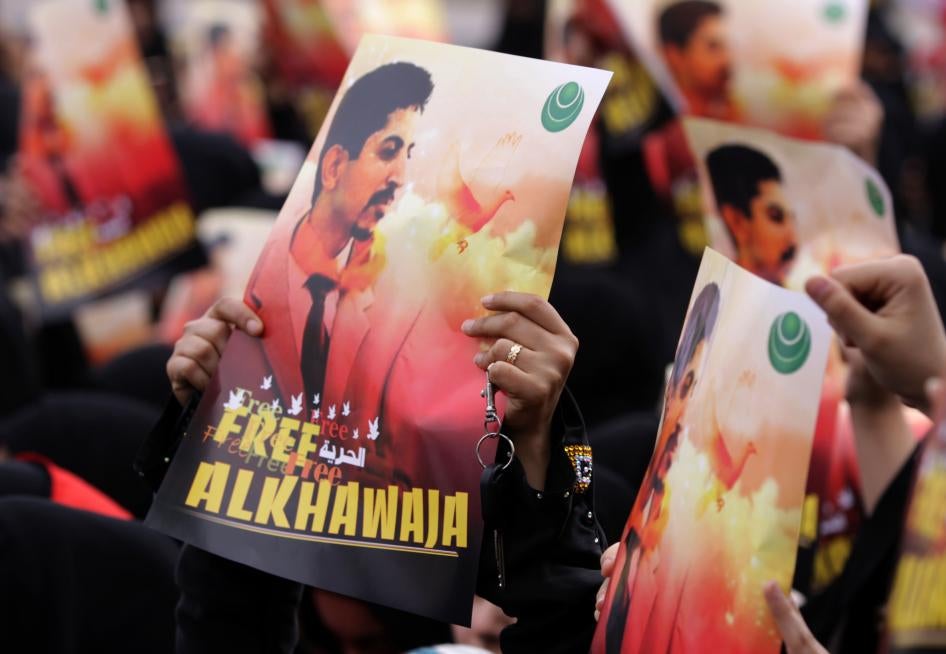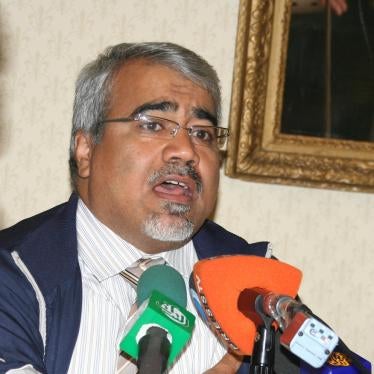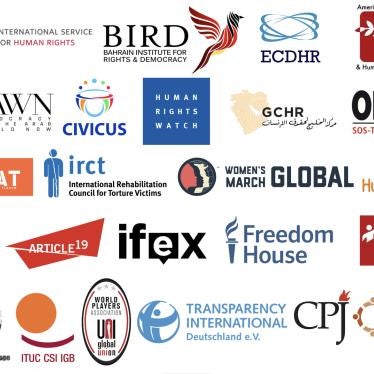In a predawn raid on April 9, 2011, 15 masked armed men stormed a family home of prominent Bahraini human rights defender and Danish citizen Abdulhadi al-Khawaja. The masked men beat and arrested al-Khawaja. Two months later, a Bahraini court sentenced him to life in prison in a mass trial on demonstrably unfair charges related to his role in peaceful demonstrations during Bahrain’s February 2011 pro-democracy uprising.
More than 11 years after this initial arrest, al-Khawaja inexcusably remains behind bars. He should not have spent a single day in prison.
Al-Khawaja needs strong, public pressure from the Danish government to finally secure his release. At age 60, his health is deteriorating from multiple health conditions resulting from the severe physical, sexual, and psychological torture he has endured while in detention, as well as a serious lack of medical treatment provided by prison authorities.
Governments like Denmark have relied on private diplomacy with the Bahraini government for over a decade to secure his release. Al-Khawaja’s longstanding unjust detention is definitive proof this private approach has failed and a new strategy must be forged. The Danish government should publicly raise the urgency of al-Khawaja’s case in public statements, demarches, and in all interactions with Bahraini authorities. These efforts should not cease until he is home with his family.
Abdulhadi al-Khawaja is an internationally recognized, award-winning human rights defender. He co-founded both the Gulf Centre for Human Rights (GCHR) and the Bahrain Center for Human Rights (BCHR), of which he is also the former president. In 2013, a member of the European Parliament nominated al-Khawaja for the Nobel Peace Prize for his role in calling for the Bahraini government to respect human rights and pursue peaceful political reform.
The time for strong, public action to secure his release is now. The Danish government should seize the fleeting momentum that has been created by recent developments. First, parliamentary elections in Bahrain are scheduled for this upcoming November, and the Bahraini government will be acutely sensitive about the country’s image internationally, especially given the track record of Bahrain’s 2018 elections, which were not fair and irreparably tarnished by state repression. Bahrain will likely try again to create an illusion of respect for human rights and dress up these upcoming parliamentary elections as free and fair. If Bahraini authorities wanted to make a genuine effort, they should start by releasing al-Khawaja and the many other rights defenders and dissidents still unfairly locked away in prison.
The current prime minister of Bahrain, Prince Salman bin Hamad al-Khalifa, has claimed he is open to reform. Al-Khalifa became prime minister in November 2020, after the previous prime minister, Sheikh Khalifa bin Salman al-Khalifa, died while in office after holding the position for more than 50 years. Releasing al-Khawaja also represents an important litmus test of the new prime minister’s commitment to genuine reform.
Public pressure from the Danish government is absolutely essential, particularly during this brief period of opportunity. Bahrain has bowed to public pressure in the past, when prominent human rights defenders like Nabeel Rajab and Zainab al-Khawaja were released after public statements and pressure, which were bolstered by private diplomacy.
Public pressure from the Danish government nearly secured al-Khawaja’s release in 2012, and the unique circumstances of the current moment will not soon present themselves again.
The Danish government should be applauded for its foreign and development policies which aim to improve democracy and human rights globally, particularly the emphasis on civic space. Publicly advocating for Al-Khawaja’s release is another way to demonstrate continued support for these important priorities.
Other governments, particularly the United States and the United Kingdom who have a strong influence on Bahrain, must also be encouraged by the Danish government to demand al-Khawaja’s release.
It is possible to ensure his release through the right combination of public and private pressure. 11 years in prison are 11 years too many. The Danish government shouldn’t need another decade to see that private pressure has failed.











